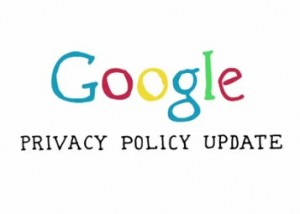 The privacy terms at Google changed today. The goal is to streamline your experience and cut through a lot of legalese that Internet companies put together. However, as part of this process, Google is also sharing data between all of their services. When you are signed into Google, Google combines information about users provided from one service with information from other services. The goal is to treat each user as one individual across all Google products, such as Gmail, Google Docs, YouTube and other Web services. These changes have Europe, Congress, the Electronic Privacy Information Center and others really upset. {source}
The privacy terms at Google changed today. The goal is to streamline your experience and cut through a lot of legalese that Internet companies put together. However, as part of this process, Google is also sharing data between all of their services. When you are signed into Google, Google combines information about users provided from one service with information from other services. The goal is to treat each user as one individual across all Google products, such as Gmail, Google Docs, YouTube and other Web services. These changes have Europe, Congress, the Electronic Privacy Information Center and others really upset. {source}
Is this personalizing what you want or actually customizing what a company can market to you?
“We can provide reminders that you’re going to be late for a meeting based on your location, your calendar and an understanding of what the traffic is like that day,” reads Google’s blog explaining the search giant’s unified policy. This works whether you’re accessing Google on your computer, tablet or cellphone, as long as you’re logged in according to Technolog on MSNBC.
“People still have to do way too much heavy lifting, and we want to do a better job of helping them out,” Google points out.
Heavy lifting??? That’s another way of saying Google knows how to find the resources for you. It’s just that the resources they find may be advertisements. Another concern is that Google is now better equipped to help out law enforcement officials and the government when it comes to finding out about you. Curious what Google can find out about you:
For some time now, Google’s been able to connect your phone with your phone number and carrier, identify your computer model and OS (right down to the serial number), collect your IP address (traceable to your real-life address), and save what you’ve searched for.
The policy states that Google will collect your location information, even if you have your GPS turned off. It says it will collect cookies data and other information about your devices. But the policy also states that Google can change your information and show information about you to others without your express consent. Did you know that?
Google’s Privacy Policy (March 1, 2012)
So what if the data will be used for advertisements? That’s nothing new. The only difference is that the advertisements will be truer to your interests. Customized! Remember — Google is free. They need to pay for their services somehow. Right?
Here’s my issue: Google’s privacy policy is NOT personalizing your search. Personalizing means you choose what you want when you want it. You drive the information to you. Remember boolean searches. Google is using your information to customize what you see and who markets to you. Your search results are different for you than someone else right now. Some of the top results get there because they pay to be promoted.



